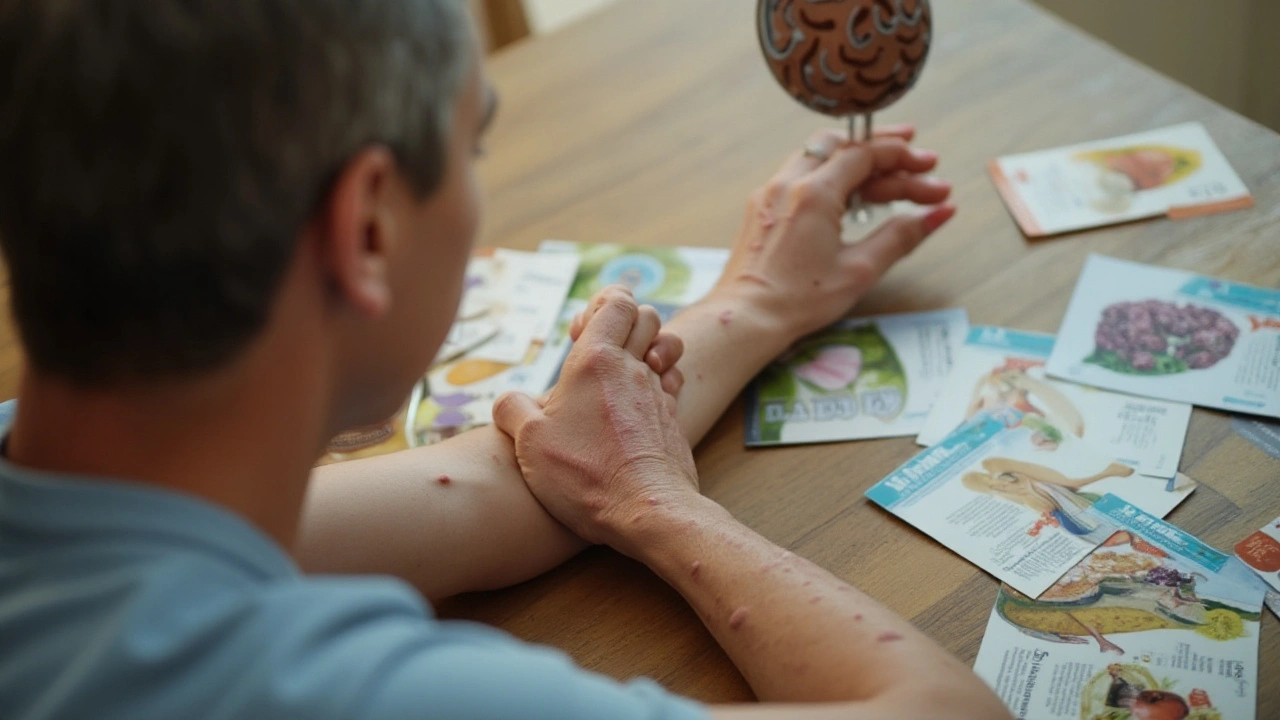Nebivolol: what it does and when it helps
Nebivolol is a prescription beta‑blocker commonly used for high blood pressure and some forms of heart failure. It works differently from older beta blockers because it not only slows the heart but also helps widen blood vessels through nitric oxide. That dual action often means better blood pressure control with fewer circulation problems for some people.
How nebivolol works
Nebivolol targets beta‑1 receptors in the heart to lower heart rate and reduce workload. At the same time it increases nitric oxide, which relaxes blood vessels and improves blood flow. Because it’s more selective for the heart, it generally causes less bronchospasm than nonselective beta blockers — but it’s still wise to be cautious if you have asthma or severe COPD.
Typical starting doses are 2.5–5 mg once daily for most adults. Doctors adjust the dose based on blood pressure and tolerance, usually up to 10 mg per day. If you have liver problems or take drugs that affect CYP2D6 (like fluoxetine or quinidine), your doctor may choose a lower dose or a different medicine.
Common side effects & safety tips
Common side effects include tiredness, headache, dizziness, and slow heart rate. Some people notice cold hands or feet. Fainting is rare but possible if blood pressure drops too low. Erectile dysfunction can happen but seems less common with nebivolol than with some older beta blockers.
Don’t stop nebivolol suddenly. Stopping quickly can cause a fast heart rate or chest pain, especially in people with heart disease. If you need to stop, your doctor will recommend a gradual taper. Take the pill at the same time each day. You can take it with or without food.
Watch interactions: nebivolol can interact with calcium channel blockers (like verapamil), other heart medicines, and strong CYP2D6 inhibitors. If you’re on medications for depression, heart rhythm, or blood pressure, tell your prescriber so they can check for interactions.
Pregnancy and breastfeeding: avoid using nebivolol unless your doctor says it’s necessary. Many beta blockers cross the placenta and pass into breast milk, so doctors weigh risks and benefits carefully.
Monitoring is simple. Check blood pressure and pulse regularly after starting or changing the dose. If you feel unusually tired, dizzy, or notice a very slow pulse (under 50 bpm), call your provider. Keep a record of your readings so your doctor can fine‑tune treatment.
Quick practical tips: set a daily alarm to avoid missed doses, carry a card that lists your heart meds, and mention nebivolol when getting any new prescription or vaccine. If side effects become bothersome, don’t stop on your own — reach out to your health care team for a safer plan.
Nebivolol and Psoriasis: Can This Medication Improve Your Skin?
Exploring the potential benefits of Nebivolol for those suffering from psoriasis. The article delves into whether this medication, commonly used for heart conditions, can offer relief for skin-related issues. It covers basic information about psoriasis, Nebivolol’s mechanism, and tips for managing skin health.
